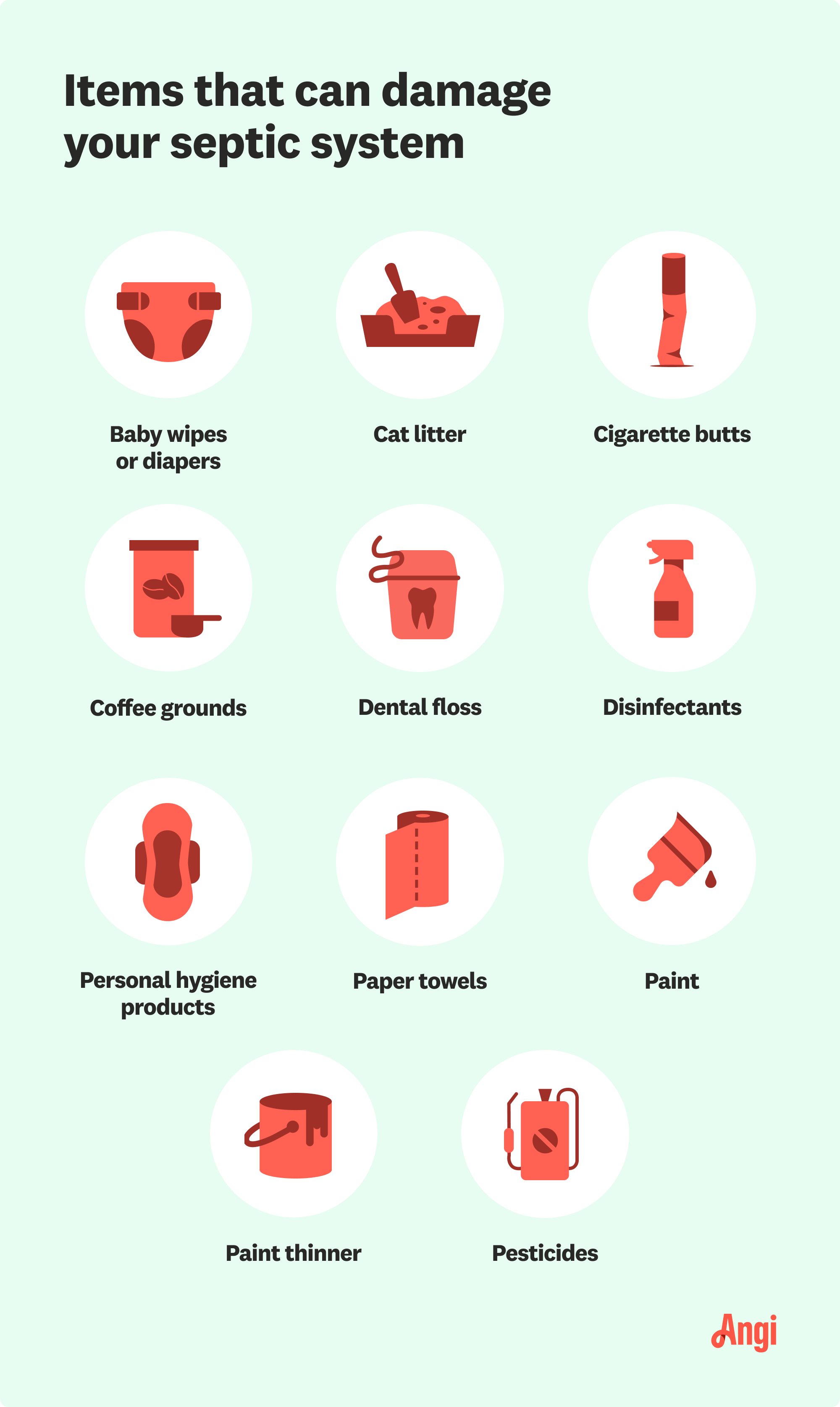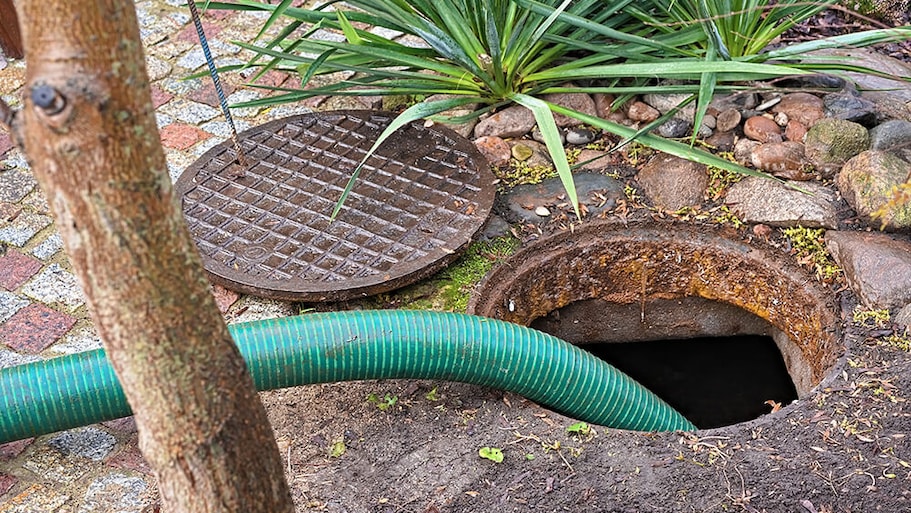Increase Your Septic System’s Lifespan With These 5 Tips
You can get a good 30 years out of a septic system with proper, routine maintenance


When it’s running efficiently and properly maintained, your septic system will be more than capable of handling your household’s wastewater and sewage. Given the expense of replacing or repairing a septic system, it’s a good idea to invest a little effort into ensuring your septic system lasts as long as possible—for 30 years or more, fingers crossed.
1. Inspect and Pump Your System Out Regularly
One of the easiest ways to give your septic system the care it needs to prolong its useful life is to regularly inspect and pump out your tank. Most experts suggest that you schedule a professional inspection of your system at least every two to five years. However, you might shorten that time frame if your home has several occupants that keep the system working harder and for more people.
In addition, you should have your tank pumped out regularly to avoid sewage sludge buildup in the bottom of the tank. Eventually, that sludge can overflow, seep into your drain field, and back up in your home’s pipes. On average, you should pump out a home’s septic tank every three to five years. As with inspections, heavy use might shorten the recommended time between servicing.
2. Conserve and Reduce Flow of Wastewater
Every septic system has a certain volume of wastewater that it can safely and efficiently handle. The specific volume of your system depends on its size, but for most residential systems, it’s somewhere between 600 and 2,000 gallons of wastewater. Frankly, less wastewater means more life—for the system, that is.
You can conserve and reduce the amount of wastewater your septic must handle at one time by following these tips:
Keep a sharp eye out for signs of leaks from your pipes and fixtures and get them repaired quickly.
Take shorter showers instead of longer baths.
Spread laundry loads throughout the week instead of one day.
Ensure you’ve got a full load of dishes or clothes before washing them.
Consider installing low-flow showerheads and toilets throughout your home.
Slowing down the flow of wastewater into your system will help it process sewage more efficiently and keep your septic running longer.
3. Don’t Put Unsafe Items in Your Septic System

Your septic system isn’t an all-purpose trash receptacle. Its purpose is for one thing and one thing only: properly treat and dispose of wastewater. In fact, one of the easiest and quickest ways to shorten your septic system’s lifespan is to use it to dispose of items that aren’t safe to dispose.
How can you tell what substances are septic system approved? It’s pretty simple, according to the EPA. Septic-safe items include toilet tissue specifically labeled as “septic safe” and human waste. That’s it—that’s the list.
Particularly unsafe items make up a far lengthier list and include the following:

The above items are dangerous for your septic system because it’s simply not built to process these substances and items. Because the septic system can’t break those items down, the result will be a pretty grimy backup.
Just remember to keep everything except the two allowed items out of your system entirely, and that will go a long way towards extending its lifespan as much as possible.
4. Maintain Your Drain Field Properly
Remember that your septic system also includes the drain field. This part of the system further filters out contaminants from the wastewater that comes out of your septic tank. To keep the entire system healthy and operating at optimal levels, make sure you follow these best practices:
Don’t drive or park anything on the drain field. The weight of cars, trucks, campers, and other vehicles can damage the area and make it harder to drain.
Plant trees and other items strategically. Tree and shrubbery root systems you thought were safe might grow into the drain field area over time, causing further damage. To ensure proper spacing between plantings and the drain field, consult a septic pro on your landscaping plans.
Keep your drain field free of obstructions. If a problem develops in the future, you’ll want to make sure your septic system contractor can access the area easily.
Ensure that all of your rainwater disposal system elements (such as roof drains and downspouts) point away from the drain field. Excess water of any kind can overwork the field, leading to blockages and backups in your yard.
5. Hire a Septic System Professional When Necessary
Backed up toilets and sinks, a proliferating septic odor, sluggish drainage—all of these things can indicate your septic system needs a little professional attention. If you begin to notice signs of a septic problem, don’t hesitate to hire a local septic system contractor who can inspect your system, diagnose the issue, and fix it. A plumber can handle any blockage or drainage problem in the home’s plumbing or in the line between the home and the septic cleanout.



















